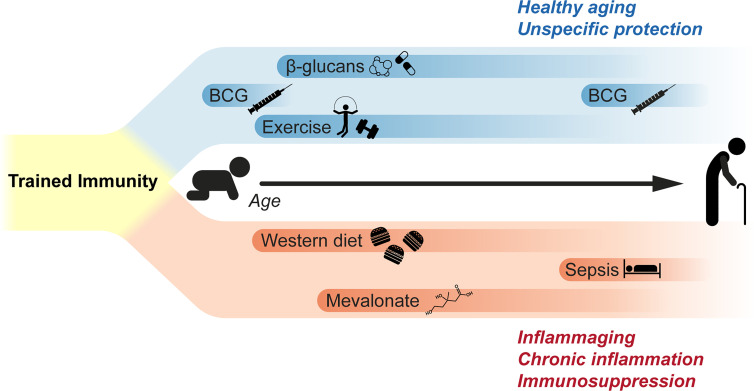Figure 1.
Impact of trained immunity during lifetime. Current studies suggest that trained immunity can have both beneficial and detrimental effects. β-glucan administration is known to induce a long-lasting reprograming of myeloid cells that results in the unspecific protection against different pathogens. BCG vaccination in children is known to afford protection and reduce all-cause mortality; similarly, recent clinical trials suggest that BCG vaccination in elderly can reduce the plasma levels of inflammatory cytokines and mediators, and to afford unspecific protection against respiratory infections. Voluntary exercise also induces analogous effects, decreasing the proliferation and lineage commitment of HSPCs while affording a long-term protection during sepsis. On the other side, western diet was found to reprogram bone marrow granulocyte progenitors, increasing the reactivity of innate immune cells. Similarly, signaling by metabolic intermediates as mevalonate was suggested to be involved in the pathological hyperinflammation affecting patients suffering from hyper-IgD syndrome. Finally, sepsis is also known to induce a long-term immunosuppression in survivors, possibly through mechanisms similar to those inducing trained immunity in hematopoietic progenitors and myeloid cells.

